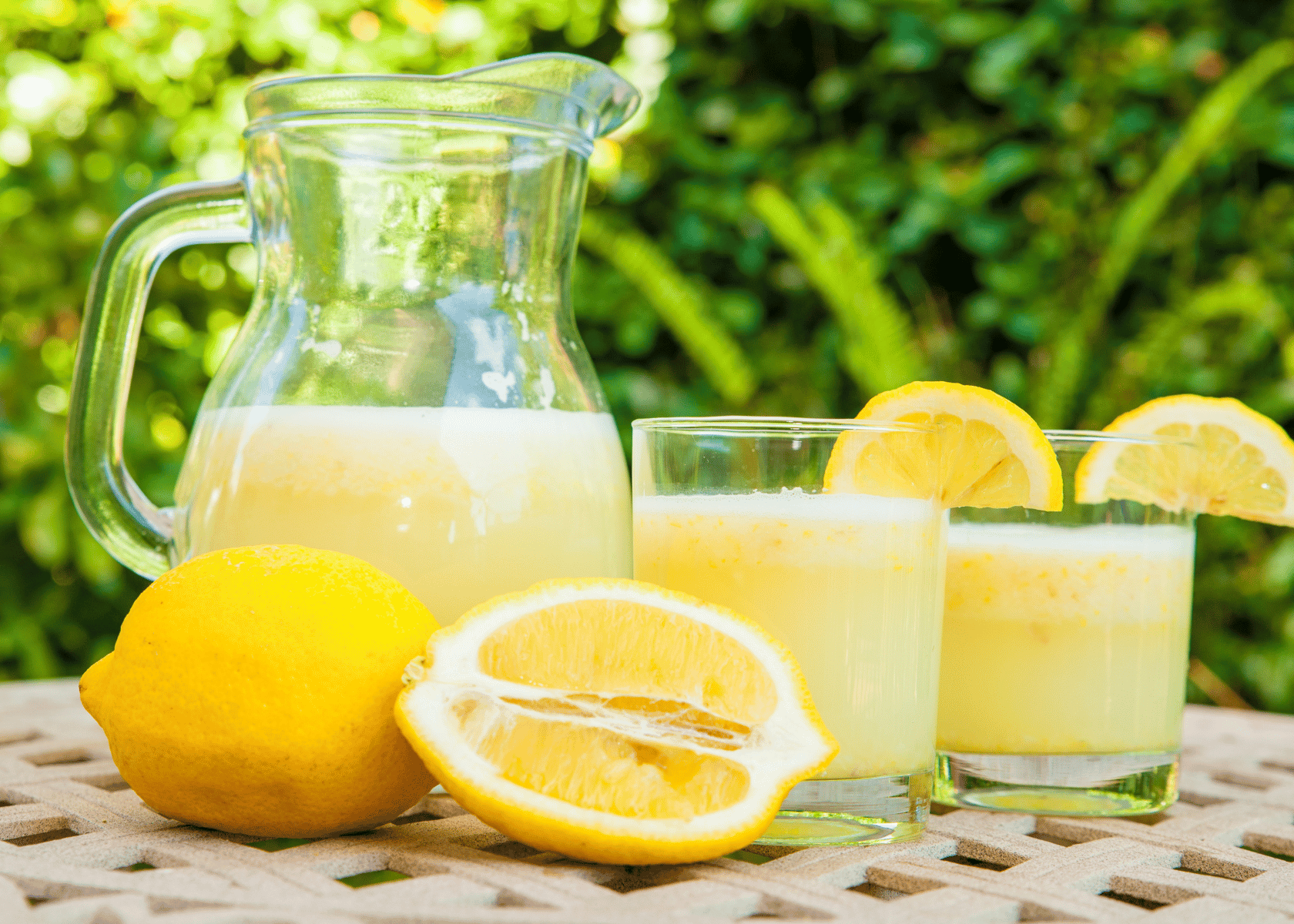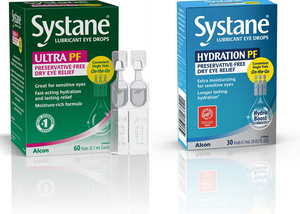Ever found yourself sipping on a chilled glass of lemonade, relishing its tangy sweetness, and suddenly caught in thought about its nutritional benefits? I mean, come on, who hasn't been curious, especially about the Vitamin C content? So, does lemonade have Vitamin C?
With some good-natured digging around, it turns out this iconic summer staple isn't just a thirst quencher - it's packing some pretty beneficial nutrients, including Vitamin C.
So let's dive in to uncover more details about the nutrient profile of our beloved lemonade and explore how factors like preparation methods can influence its Vitamin C content.
Stick with me through this zest-filled journey to make sure your favorite citrus-y delight is not only keeping you refreshed but also boosting your health!
Key Takeaways
- Lemonade contains vitamin C, with approximately 190 mg per cup.
- Factors such as preparation methods and whether it is freshly squeezed or pre - packaged can affect the vitamin C content in lemonade.
- In addition to vitamin C, lemonade also contains calories, protein, fiber, sugars, calcium, iron, and potassium.
- Vitamin C in lemonade boosts the immune system, acts as an antioxidant, and helps in collagen production.
The Nutritional Content of Lemonade

Lemonade is a popular drink enjoyed by many, but does it actually contain any essential nutrients?
Vitamin C content in lemonade
Lemonade, a beloved citrus beverage, is bursting with Vitamin C along with several powerful nutrients. A single cup of this refreshing drink holds approximately 190 mg of vitamin C, although the exact amount can vary.
Factors such as whether the lemonade is freshly squeezed or pre-packaged play a significant role in determining its vitamin C content which ranges between 14.10 mg and 1.50 mg per 100g.
Despite being high in vitamin C, lemonade isn't your only option; other fruits like oranges are excellent sources, too. Interestingly enough, some popular brands like Simply Lemonade don’t contain any Vitamin C at all!
Regular consumption of lemonade not only quenches thirst but also offers potential health advantages courtesy of its famed ingredient - lemons- known for their abundant health benefits and high Vitamin C content.
Other nutrients found in lemonade
Lemonade is not only rich in vitamin C, but it also contains other vital nutrients. Let's take a closer look at the nutritional content of this refreshing citrus drink.
|
Nutrient |
Amount (Per Cup) |
|
Calories |
99 |
|
Protein |
0.2 grams |
|
Fiber |
0.1 grams |
|
Sugars |
24.8 grams |
|
Calcium |
8 milligrams |
|
Iron |
0.1 milligrams |
|
Potassium |
90 milligrams |
In addition to vitamin C, lemonade provides calories, protein, fiber, sugars, calcium, iron, and potassium. However, its sugar content is high, so it's best to enjoy it in moderation.
Benefits of Vitamin C in Lemonade
Vitamin C in lemonade boosts the immune system, acts as an antioxidant, and helps in collagen production.
Boosts immune system
Vitamin C plays a crucial role in boosting the immune system and keeping us healthy. Lemonade, with its high vitamin C content, can be a great way to support our immune system.
Vitamin C helps stimulate the production of white blood cells, which are essential for fighting off infections and protecting our bodies against harmful pathogens.
By regularly consuming lemonade, we can give our immune system the extra support it needs to stay strong and function optimally. So enjoy a refreshing glass of lemonade and give your immune system a natural boost!
Acts as an antioxidant
Lemonade acts as an antioxidant, which means it helps protect our cells from damage caused by harmful molecules called free radicals. Free radicals can lead to chronic diseases like heart disease and cancer.
The vitamin C in lemonade is a powerful antioxidant that neutralizes these free radicals, reducing their negative impact on our health. This antioxidant property of lemonade makes it not only refreshing but also beneficial for promoting overall well-being.
So, enjoy a glass of lemonade, knowing that it's helping your body fight against oxidative stress and maintaining good health.
Helps in collagen production
Collagen is an important protein that gives structure to our skin, bones, and connective tissues. Vitamin C plays a crucial role in collagen production. By consuming lemonade, which is rich in vitamin C, you can help support the synthesis of collagen in your body.
This can contribute to healthier skin and stronger joints, as well as promote wound healing. Adding lemonade to your diet can be a delicious way to boost your intake of this essential nutrient and enjoy its benefits for collagen production.
Lemonade's vitamin C content not only provides antioxidant properties but also contributes to the formation of collagen throughout your body.
So, next time you quench your thirst with a refreshing glass of lemonade, remember that you're also supporting the health and strength of your skin and connective tissues!
Factors Affecting Vitamin C Content in Lemonade

The vitamin C content in lemonade can be affected by factors such as the type of lemonade (freshly squeezed vs. packaged), storage and preparation methods, and the addition of other ingredients.
Freshly squeezed vs. packaged lemonade
Freshly squeezed lemonade and packaged lemonade differ in terms of their vitamin C content. Freshly squeezed lemonade tends to have a higher vitamin C content compared to its packaged counterpart.
This is because freshly squeezed lemon juice retains more of its natural nutrients, including vitamin C, due to minimal processing.
On the other hand, packaged lemonade may undergo heat treatment and pasteurization, which can reduce the vitamin C content. Therefore, if you're looking for a higher dose of vitamin C, opting for freshly squeezed lemonade is your best bet.
Storage and preparation methods
Storing and handling lemons properly is important to preserve the vitamin C content in lemonade. Here are some tips:
- Store lemons in a cool, dark place, away from direct sunlight. Sunlight can degrade vitamin C.
- Keep lemons in a dry environment to prevent mold or rotting.
- Avoid storing lemons for an extended period, as the vitamin C content can decrease over time.
- Wash lemons thoroughly before using them to remove any dirt or bacteria.
- Cut lemons just before squeezing them for maximum freshness and nutrition.
Adding other ingredients
Adding other ingredients to your lemonade can not only enhance the taste but also increase its vitamin C content. Here are some ingredients you can consider adding:
- Strawberries: These sweet berries are packed with vitamin C and can add a delicious twist to your lemonade.
- Pineapple: Adding pineapple chunks or juice to your lemonade can give it a tropical flavor while boosting its vitamin C content.
- Mint leaves: Fresh mint leaves not only add a refreshing taste but also provide additional health benefits, including antioxidants.
- Ginger: Adding grated ginger or ginger juice can give your lemonade a spicy kick and provide anti-inflammatory properties.
- Honey: Instead of using sugar, opt for natural sweeteners like honey. This not only adds sweetness but also provides trace amounts of vitamins and minerals.
How to Optimize Vitamin C Intake from Lemonade

Choose fresh, homemade lemonade made with freshly squeezed citrus fruits to maximize your vitamin C intake.
Store and handle lemons properly to preserve their nutrient content. Consider adding other vitamin C-rich ingredients like oranges or strawberries for an extra boost of this essential vitamin.
Discover the best ways to optimize your lemonade's nutritional value and enjoy its health benefits!
Choosing fresh, homemade lemonade
Fresh, homemade lemonade is the best option when it comes to maximizing your vitamin C intake. By making your own lemonade, you can ensure that you are using fresh lemons which are rich in this essential vitamin.
Store-bought or packaged lemonades may not have the same amount of vitamin C as they often contain additives and preservatives.
By opting for homemade lemonade, you can enjoy the full nutritional benefits of this citrus fruit while also enjoying a refreshing and delicious beverage.
Storing and handling lemons properly
Storing and handling lemons properly is essential for maintaining their freshness and maximizing their vitamin C content. Here are some tips to help you do just that:
- Store lemons in the refrigerator: Keeping lemons in the refrigerator helps to prolong their shelf life and preserve their nutritional value. The cool temperature slows down the process of vitamin C degradation.
- Keep lemons away from moisture: Moisture can cause lemons to spoil quickly. It is important to store them in a dry environment or wrap them in a paper towel before placing them in a sealed bag or container.
- Avoid cutting lemons until ready to use: Once cut, lemons start losing their vitamin C content rapidly. It is best to wait until you are ready to use them before cutting into them.
- Use fresh-squeezed lemon juice immediately: If you are making homemade lemonade, it is recommended to use freshly squeezed lemon juice right away. This ensures that you get the maximum amount of vitamin C from the lemons.
- Choose ripe and firm lemons: When buying lemons, look for ones that are firm with bright yellow skin. Ripe lemons tend to have a higher vitamin C content compared to unripe ones.
Adding other vitamin C-rich ingredients
Adding other vitamin C-rich ingredients to your lemonade can further boost its nutritional value. Consider incorporating the following ingredients for an extra dose of this essential vitamin:
- Squeezed orange juice: Add a splash of freshly squeezed orange juice to your lemonade for an additional burst of vitamin C.
- Strawberries: Slice up some strawberries and add them to your lemonade for a delicious and vitamin C-rich twist.
- Kiwi: Chop up some kiwi fruit and mix it into your lemonade to increase its vitamin C content.
- Pineapple: Add chunks of pineapple to your lemonade for a tropical flavor and a boost of vitamin C.
- Fresh mint leaves: Garnish your lemonade with fresh mint leaves, which not only add flavor but also provide additional vitamin C.
FAQs

1. Does lemonade have Vitamin C?
Yes, lemonade does contain Vitamin C, particularly the homemade or cloudy type that uses real lemons which are natural sources of vitamin c.
2. How much Vitamin C is in a serving of sweetened lemonade?
The amount of Vitamin C content in beverages like sweetened or flavored drinks can vary based on the preparation and additives used. Always check the nutrition facts for accurate information!
3. Can drinking lemonade help boost my immune system?
Lemonade provides health benefits including a source of antioxidants, such as vitamin C, which can support your immune system.
4. Is Lemonade good for daily intake of vitamin c?
While lemonade can contribute to your daily intake of Vitamin-c due to its inherent properties; it should be noted that other fruit juices could offer higher levels.does lemonade have vitamin c
Conclusion
Lemonade is indeed a good source of vitamin C. One cup of this citrus drink can provide you with about 190 mg of this essential vitamin. So, if you're looking for a refreshing way to boost your immune system and promote overall health, why not reach for a glass of lemonade?









